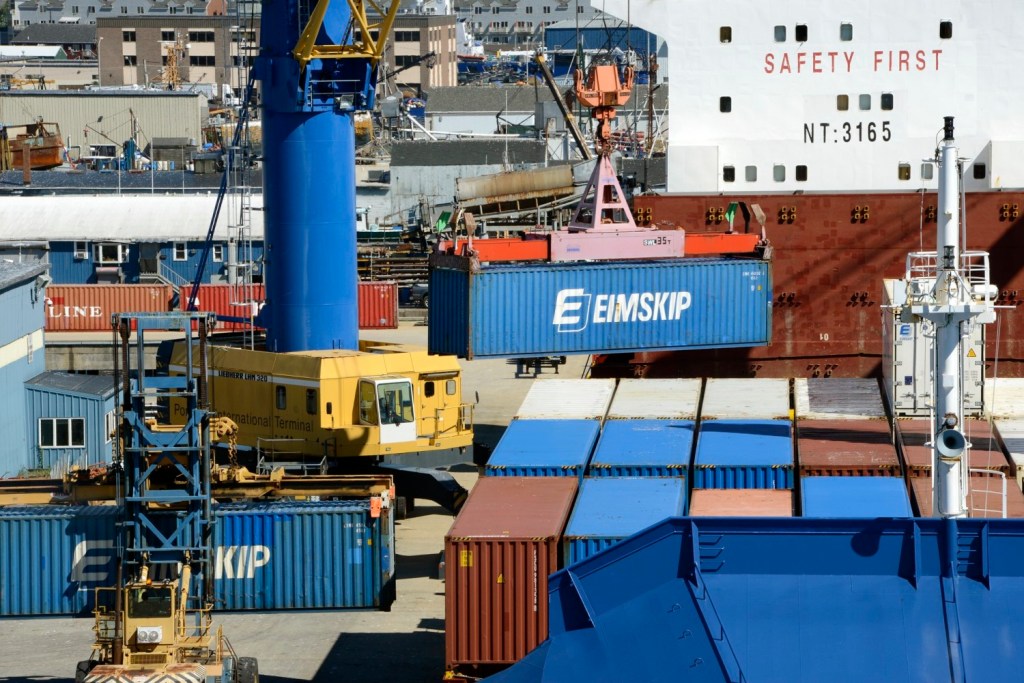It is a rare occasion when the Maine Port Authority takes a position on a local issue. However, the stakes on Question 2 on Portland’s municipal ballot are too high and reach too far beyond the city of Portland for the port authority to remain silent.
It is the mission of the Maine Port Authority to improve the global competitiveness of Maine businesses through the development of transportation and other assets in a responsible fashion, in support of economic development. It is in the spirit of our mission that we oppose the referendum.
Question 2 on the Nov. 3 municipal ballot seeks to amend the current land use ordinance with the aim of protecting some of Portland’s scenic viewpoints from development.
Question 2 provides for the creation of scenic viewpoint protection zones. Additional scenic viewpoints – aside from the one created in the ordinance to protect the views from a section of Fore Street overlooking the former Portland Co. site – may receive protection through a rezoning process.
Such rezoning requests may be initiated by the Scenic Viewpoint Task Force created by the referendum, by request of 20 members of the general public or by the owner of an affected property.
In practice, this means that 20 Portland residents from anywhere in the city or one affected property owner can stop any development they object to. This is a formula for paralysis. Few developers would likely be willing to commit to substantial investments to improve properties in the city under such uncertain circumstances.
Contrary to the practice proposed in Question 2, Portland has a well-documented history and process with respect to waterfront zoning.
Having come to the realization of the need for a comprehensive review of waterfront zoning after the experience of unfettered development of non-marine uses of the Portland waterfront in the 1980s, the Portland Waterfront Alliance – a nonprofit organization of pier owners, environmental groups, waterfront business owners and interested citizens – began guiding the creation of waterfront zoning.
The city participated in the Portland Waterfront Alliance’s negotiations and policy drafting, and eventually directed city planning staff to implement the recommendations in the alliance’s report through a revised zoning code (adopted in 1994).
Six years ago, the city of Portland asked the Maine Port Authority to lease and operate the International Marine Terminal on Commercial Street in order to revive an underutilized and underappreciated transportation asset in the city.
Over the past four years, the state and federal governments have invested close to $25 million to rehabilitate and expand the International Marine Terminal, to the benefit of the economy of both the city and the state.
The Maine Port Authority has developed the property in a manner consistent with the city’s zoning code and in a way that is consistent with the city of Portland’s long-standing objective of separating passenger and freight operations by developing the former on the eastern end of the city’s waterfront and the latter on the western end.
In doing so, we believe we have been good neighbors to those in the surrounding neighborhoods. We have met regularly with neighborhood groups and even reduced the height of light poles and installed energy-efficient LED lighting in the terminal to reduce power consumption and lessen light exposure outside the terminal.
One thing we have learned, however, is that you can never please everyone. If you tried to, nothing would ever get done.
Like the 58 Fore St. site today, the International Marine Terminal was a decaying asset in a state of disrepair when the Maine Port Authority leased it from the city. Today, it is a transportation hub with statewide importance for jobs and the economy. We are currently anticipating additional investments in the property, both public and private, to further leverage this important asset to the benefit of the region’s economy.
The short-sighted proposal contained in Question 2 would deny the city and the region the ability to prosper. For these reasons, the Maine Port Authority opposes the passage of Question 2.
Send questions/comments to the editors.



Comments are no longer available on this story